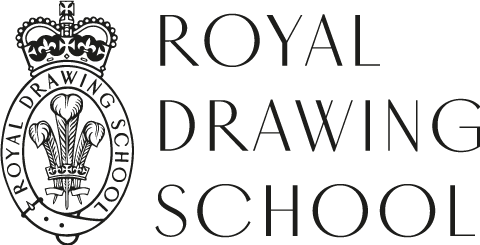Safeguarding Code of Conduct
Staff, Tutor and Artists Models
In its simplest form, ‘safeguarding’ can be defined as ‘keeping children, young people and vulnerable adults, safe from harm’.
At the Royal Drawing School we believe that all staff, tutors and artist models share responsibility for safeguarding and promoting the welfare of children, young people and vulnerable adults at risk. The Safeguarding Code of Conduct below sets out what is required. Please speak to your Programme Manager if you are unclear or require further clarification in relation to your position at the school.
Everyone working at the Royal Drawing School, whether in employed or self-employed roles are expected to adhere to this Code. You may also be required to undertake training in safeguarding.
The Safeguarding Code of Conduct:
- Makes clear what is required of all staff, tutors and artist models
- Supports staff and tutors in meeting their obligations
- Enables staff, tutors and artist models to raise concerns without fear of recrimination
- Reduces the risk of misplaced or malicious allegations by clarifying responsibilities
Staff, workers and artists models must abide by the following:
- Report any incidents or concerns that cause you to believe that a child, young person or adult at risk is, or is likely to be, at risk of harm. This includes a requirement under the Prevent duty to report if you suspect that a child or adult at risk may be under the influence of radicalisation or extremism.
- The Royal Drawing School will support any staff member, worker or volunteer who raises a legitimate concern about the actions of others;
- Disclose any criminal record, caution, reprimand or warning (subject to filtering rules1) whether received prior to or during the course of your work for the Royal Drawing School 2. For the avoidance of doubt, this requirement is in addition to any other published requirement for disclosure as part of your work;
- Inform your manager of any ongoing or past child protection investigation(s) that have involved you, including any that you are aware of that relate to your own immediate family or any person that you are in a significant relationship with e.g. family members, partners, individuals who live in the same household;
- Inform your manager of anyone living in your household or at your address who becomes disqualified from working with children e.g. as a result of offences against a child, against an adult e.g. rape, murder indecent assault, actual bodily harm etc. (this is a legal requirement to staff in England and Wales working in early years provision, later years provision up to 8 years and in the management of such early or later years provision).
It is not permissible (and in some instances may be unlawful) for you to:
- Use your position to intimidate, bully, threaten, discriminate against, coerce or undermine children and young people, adults at risk, staff, tutors or artist models;
- Behave or communicate with children, young people or adults at risk in ways which seek to build inappropriate relationships in order to abuse or put them at risk;
- Use a relationship with a student or their family for personal gain.
- Give special rewards or privileges in an attempt to build inappropriate relationships with children and young people or adults at risk;
- Engage in, or attempt to engage in, sexual or inappropriate relationships with children, young people or adults at risk for whatever reason, including the use of suggestive conversations, comments, texting or emails;
- Possess indecent images of children; this will always be reported to the police regardless of the explanation provided;
- Carry out your duties whilst adversely affected by alcohol, solvents or drugs;
- Encourage or assist others to break the law in any way;
You will conduct yourself in accordance with this Safeguarding Code of Conduct in all your work for the Royal Drawing School. Any breach of the Safeguarding Code of Conduct may result in disciplinary action including dismissal, or the termination of your working agreement or involvement with the Royal Drawing School, as appropriate. In certain circumstances, if following investigation breaches of the Code are found, such action will also result in reports to Regulatory bodies, relevant Local Authorities and/or the police, as appropriate.
Whistleblowing
In some instances Staff, Self-employed Tutors or Self-employed Artist Models will need to report wrong doing deemed to be in the public interest.
Definition: ‘Whistleblowing’ may be defined as the action of an employee, Self-employed tutor or Self-employed Artist Model in disclosing evidence of wrongdoing including fraud, financial irregularity, serious maladministration arising from the deliberate commission of improper conduct, unethical activities which may be of a criminal nature and dangerous acts or omissions which create a risk to health, safety or the environment, within the organisation to which they belong. It does not include mismanagement which arises from weak or poor management, rather than malpractice.
Whistleblowing Procedure
If a member of Staff, Self-employed Tutors or Self-employed Artist Models knows of some instance of wrongdoing which might reasonably be said to fall within the scope of the definition of Whistleblowing above, or if they have reasonable grounds to suspect it, they should report it orally, or in writing. This report should be made to the Principal unless there are grounds to suspect the Principal may be party to the wrongdoing, in which case the report should be to a member of the Board of Trustees.
Further information regarding Whistleblowing and Whistleblowing procedures can be found in the policies section on the Royal Drawing School website.
1. Certain spent convictions and cautions are “protected” (also known as filtered) and are not subject to disclosure to employers. Applicable in England and Wales and Northern Ireland. For further details, please refer to https://www.gov.uk/government/organisations/disclosure-and-barring-service (England & Wales) or https://www.nidirect.gov.uk/articles/disclosure-and-barring-protecting-children-and-vulnerable-adults (Northern Ireland). Criminal records checks in Scotland are provided by Disclosure Scotland.
2. For non-regulated activities this obligation is limited to unspent criminal convictions only.
